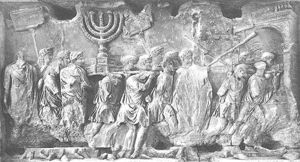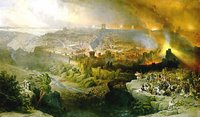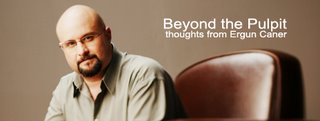The first recommendation is a book called Ten P’s in a Pod A Million-mile Journal of the Arnold Pent Fami
 ly written by Arnold Pent III. This book is right at 200 pages and our family enjoyed it over a couple of weeks each night before we read the scriptures together before bed. It was wonderful to read how the family work together played together and minister together. Clearly it seems the mother and father sought to train their children in the nurturer and admonition of the lord. It doesn’t seem that the children were rebellious towards them or their training in any way. This book is taken from the diary of our hope and the third, one of eight children. Though his father may not have been reformed, he definitely lived a life that appeared to be one of trusting god for even the smallest things of life. You’ll be amazed encouraged and even convicted at the tremendous amount of love for the word of a lot that the Pent family had. They were constantly reading the Scriptures in memorizing the Scriptures and quoting the Scriptures from memory. They have determined that by the time each child turned eighteen that they had spent over 20,000 hours reading and memorizing Scripture. In fact, one of the boys could quote the entire New Testament from memory while several of the children could finish any verse in the Bible when others began the quote of a certain passage. Our family enjoyed this book and I am sure yours will too. I wholeheartedly recommend this book for you and your family. P.S. this sounds like the manifestation of the kind of persons who hold Psalm 119 dear to their heart(
ly written by Arnold Pent III. This book is right at 200 pages and our family enjoyed it over a couple of weeks each night before we read the scriptures together before bed. It was wonderful to read how the family work together played together and minister together. Clearly it seems the mother and father sought to train their children in the nurturer and admonition of the lord. It doesn’t seem that the children were rebellious towards them or their training in any way. This book is taken from the diary of our hope and the third, one of eight children. Though his father may not have been reformed, he definitely lived a life that appeared to be one of trusting god for even the smallest things of life. You’ll be amazed encouraged and even convicted at the tremendous amount of love for the word of a lot that the Pent family had. They were constantly reading the Scriptures in memorizing the Scriptures and quoting the Scriptures from memory. They have determined that by the time each child turned eighteen that they had spent over 20,000 hours reading and memorizing Scripture. In fact, one of the boys could quote the entire New Testament from memory while several of the children could finish any verse in the Bible when others began the quote of a certain passage. Our family enjoyed this book and I am sure yours will too. I wholeheartedly recommend this book for you and your family. P.S. this sounds like the manifestation of the kind of persons who hold Psalm 119 dear to their heart(Second I would recommend to new books from doctor Richard Belcher. Both books are wh
 at we would call theological novels. They are A Journey in Faith and A Journey in God’s Sover
at we would call theological novels. They are A Journey in Faith and A Journey in God’s Sover eignty. My children love these stories of adventure and the study of God’s Word with the fictional characters Ira Fife Pointer and Dink. I would highly recommend any of the books in the “Journey” series by Dr. Belcher. He came and spoke to us back in January of this year and I found him to be a true delight and faithful man of God. Though he is 70, he is as full of life, passion and a love for God and His Word as any young man today. I’m sure young and old alike will enjoy and benefit from these books.
eignty. My children love these stories of adventure and the study of God’s Word with the fictional characters Ira Fife Pointer and Dink. I would highly recommend any of the books in the “Journey” series by Dr. Belcher. He came and spoke to us back in January of this year and I found him to be a true delight and faithful man of God. Though he is 70, he is as full of life, passion and a love for God and His Word as any young man today. I’m sure young and old alike will enjoy and benefit from these books.We also finished up the Crown and Covenant books by Douglas Bond. Again, these were wonderful God honoring stories based in a real historical setting around the famous Scottish Covenanters. Real historical events and real historical people are mixed in with fictional characters from a student and teacher of Scottish Covenant history. You will simply fall in love with Duncan, An
 gus, and their father Sandy M’Kethe and they seek to survive amidst the king’s dragoons and the struggle against the temptations of the flesh and the false religious system of the papacy. There are three in the series: Duncan’s War, King’s Arrow, & Rebel’s Keep. I must confess that near the end of the third volume I was so choked up that it took several minutes for me to gain my composure. Denise was also very moved. Your children will love these, especially your boys.
gus, and their father Sandy M’Kethe and they seek to survive amidst the king’s dragoons and the struggle against the temptations of the flesh and the false religious system of the papacy. There are three in the series: Duncan’s War, King’s Arrow, & Rebel’s Keep. I must confess that near the end of the third volume I was so choked up that it took several minutes for me to gain my composure. Denise was also very moved. Your children will love these, especially your boys.We also finished up Through Gates of Splendor by Elizabeth Elliot. We read this in preparation for viewing the
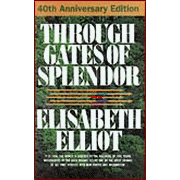 film End of the Spear. Personally, I found both to be very edifying, though the book was much more detailed and inspiring. It was good to see how God brought all of the missionaries together with different talents and abilities that complimented one another and helped them attain their goal of seeking to bring the gospel to the Aucas. I enjoyed the film, thou
film End of the Spear. Personally, I found both to be very edifying, though the book was much more detailed and inspiring. It was good to see how God brought all of the missionaries together with different talents and abilities that complimented one another and helped them attain their goal of seeking to bring the gospel to the Aucas. I enjoyed the film, thou gh I thought they made Jim Elliot look pretty silly, which I would never have viewed him as. Also, though the film does not contain a complete gospel and I don’t think that was its intention, as I recall I don’t know that a complete gospel was presented in Elliot’s book either. Elliot’s book presents the story from the missionaries and their wives perspective, while the film presents the perspective of the Aucas. The book we read was the 40th anniversary edition which had a great appendix added for the 40th anniversary of the story. I thought in that reflection Elizabeth Elliot was honest and forthright about the missionaries and the sovereignty of God. This is really a blessing to read.
gh I thought they made Jim Elliot look pretty silly, which I would never have viewed him as. Also, though the film does not contain a complete gospel and I don’t think that was its intention, as I recall I don’t know that a complete gospel was presented in Elliot’s book either. Elliot’s book presents the story from the missionaries and their wives perspective, while the film presents the perspective of the Aucas. The book we read was the 40th anniversary edition which had a great appendix added for the 40th anniversary of the story. I thought in that reflection Elizabeth Elliot was honest and forthright about the missionaries and the sovereignty of God. This is really a blessing to read. On a personal level of late, I have read Ken Gentry’s Before Jerusalem Fell: Dating the Book of Revelation. Also, I have begun David Chilton’s work, Days of Vengeance, which is a commentary on the Book of Revelation and am looking forward to reading a gift from my friend Hank titled, Kingdom Prologue by Meredith Kline. Earlier this year I also finished John Sarfati’s work Refuti
On a personal level of late, I have read Ken Gentry’s Before Jerusalem Fell: Dating the Book of Revelation. Also, I have begun David Chilton’s work, Days of Vengeance, which is a commentary on the Book of Revelation and am looking forward to reading a gift from my friend Hank titled, Kingdom Prologue by Meredith Kline. Earlier this year I also finished John Sarfati’s work Refuti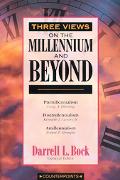 ng Compromise in which he demonstrated the problems that arise with the old earth theory, in particular refuting Hugh Ross’ comments concerning the issue and Three Views of the Millenium and Beyond. There are several books in my library that
ng Compromise in which he demonstrated the problems that arise with the old earth theory, in particular refuting Hugh Ross’ comments concerning the issue and Three Views of the Millenium and Beyond. There are several books in my library that have not been read yet. However, one that I am eager to sit down with an read is The Marketing of Evil by David Kupellan. I heard it was a good book, so if you have read it and feel it is not, please save me from wasting my time( I was recommended a book titled Romanced to Death by Paul deParrie last year and found it to be an excellent expose against the raging sexual craze of our western culture. Though it is out of print you can obtain it through some resources such as Amazon.com, or possibly Homewardbooks.com (shameless plug:), via an email.
have not been read yet. However, one that I am eager to sit down with an read is The Marketing of Evil by David Kupellan. I heard it was a good book, so if you have read it and feel it is not, please save me from wasting my time( I was recommended a book titled Romanced to Death by Paul deParrie last year and found it to be an excellent expose against the raging sexual craze of our western culture. Though it is out of print you can obtain it through some resources such as Amazon.com, or possibly Homewardbooks.com (shameless plug:), via an email.Recently, I caught a great sermon by Pastor Roy Hargrave titled An Idol Called Evangelism. This sermon is a wonderful complement to another recommended book from the past, Evangelicalism Divided. Pastor Hargrave’s citations of Charles Finney are right on and in my opinion, downright frightening. Today’s Finney follower, most of which can be found in the SBC, should seriously consider Finney’s legacy and what it led to and the biblical concerns that Pastor Hargrave presents.
Finally: Software stuff. I found a great PDF creator for free without advertising through Sourceforge.net. Sourceforge.net is a great site that brings together people from all walks of life to develop a variety of software for free, where everyone contributes and everyone benefits. This PDF Creator can be obtained here.
By the way, they finally got the Homewardbooks site up, but I will probably not go with the new setup. The company who sold the store is now trying to dip their hands into my pockets further through extra transaction fees, which in my opinion, they simply are not entitled to after taking me for over $300 and not offering a refund when after many months they were down and could not provide service paid for. WARNING: Stay away from SPREADTHEWORD.COM.
Finally, I wanted to let some of you know about the Apologetics Group’s conference on Reformed theology in Draper, VA in October. Last year’s was great on the subject of Amazing Grace. This year’s conference is on The Family: God’s Weapon for Victory. If you can attend, I’m sure it will be a great blessing and instruction from God’s Word.




